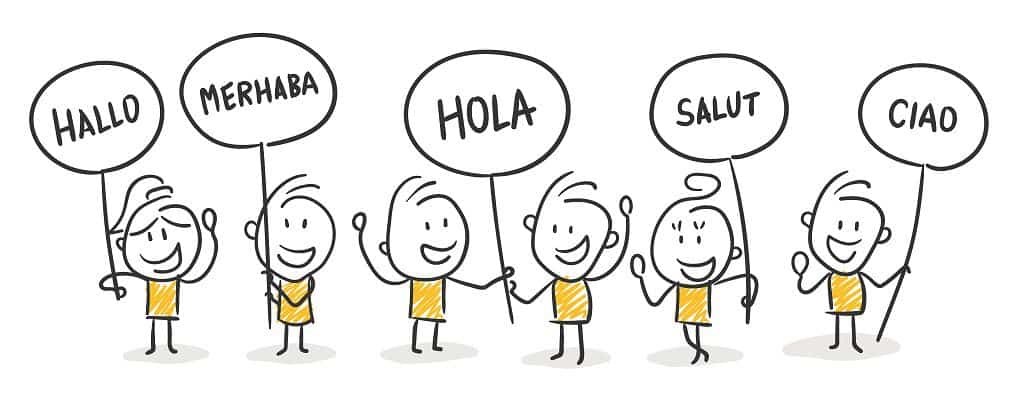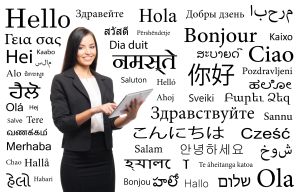
The Ultimate Manual on Selecting an Adept Translator

In communication, the essence of our world, when knowledge and understanding are the currency of success, translators play an essential role in communicating languages across national borders and creating a global society free from cultural and social barriers. Regardless of whether you are a global multicore, a small business getting international customers, or a single expatriate unfamiliar with a foreign language, the vital point is to have a translator with you. When the array of options is numerous, how can you be sure you pick the best choice for your needs? Let’s enter the translation world and discover what’s needed to find the right translator.
Define Your Needs: Before embarking on the journey to find a translator, empower yourself by clearly defining your standards. Understand what languages you need to translate, the topic, your preferred style, and more. Are you in need of a document translation? We can help you maximize the impact of multilingualism initiatives, or do you have other requirements? By understanding your specific needs, you can simplify the process of choosing a translator and ensure a successful selection based on appropriate experience.
Language Proficiency: Naturally speaking a language is a cornerstone of a translator’s professional capability. However, more than fluency is required. It’s important to consider native speakers or those who are nearly native in both the source and target languages. This ensures a comprehensive and sophisticated translation, particularly when capturing cultural nuances and idioms.
Subject Matter Expertise: Translators can specialize in various fields, such as legal, medical, technical, or literary translation. When selecting a translator, it’s essential to choose a specialist with a background in the subject matter of your translation. For instance, a legal document requires a translator with specific knowledge of the law, while medical texts necessitate someone with a medical background. This specialization ensures the translation is precise and maintains the integrity of the information.
Experience Matters: Acquiring experience results in an expert. It is expedient to seek translators with a history of accuracy and speed of delivery within your business segment. Ask for samples of translations done before or if a reference from satisfied customers is available as a baseline on their proficiency and credibility.
Technological Proficiency: Translation software and language tools are helpful nowadays in the world of advanced technology. Translators well-versed in terminology management systems, including SDL Trados, MemoQ, or Memsource, can significantly guarantee the performance and consistency of the translation project as a whole. Furthermore, being familiar with machine translation and post-editing know-how shows readiness for technology development that may and does occur.
Cultural Sensitivity: Effective communication transcends language barriers and incorporates cultural understandings and sensibilities. A skilled translator doesn’t just translate words; they share the significance of a culture. Ensure you work with translators who demonstrate cultural sensitivity and know the target audience’s cultural norms, value system, and expectations. This will make you feel understood and respected, enhancing the quality of your communication.
Communication: The success or failure of translation projects is inextricably linked to the client and the translator’s successful communication and cooperation efforts. Choose a translator who can explain understandably and fast enough to answer the questions. Also, he is open-minded to feedback and revisions. A teamwork way of working, such as in a translation process, will help to make the final translation agree with your expectations and needs.
Certifications and Accreditations: Despite not being mandatory, certifications and accreditations will help as evidence of a translator’s credibility and proficiency. Reference for the translation of rare languages should be directed toward translators who have provided certification from an organization like ATA ( American Translators Association) or similar professional associations.
Cost and Turnaround Time: Balancing quality and cost is crucial when selecting a translator. While opting for the lowest-cost option may be tempting, quality and reliability remain paramount. Request quotes from several translators and compare their charges, stipulated times, and payment structures. Remember that high-quality translation is an investment that will yield long-term benefits, providing you with a sense of security and confidence in your decision.
Recommendations: Recommendations are part of your community development plan. Kindly request your associates, colleagues from the particular industry, or online communities to make referrals for you. Data from online platforms like Google reviews can give clients significant information about the reputation and reliability of the translators they choose.
Therefore, selecting a competent translator is pivotal in providing a good link for eliminating language and cultural barriers, ensuring unproblematic communication, and unlocking the full potential that international platforms can offer. Undoubtedly, it is vital to consider the abovementioned factors and perform an attentive analysis of different translating services to devise a mutually beneficial partnership with a translator who fulfills and outperforms your requirements. Therefore, take the plunge and allow translation’s great power to facilitate your way to success and create strong connections on the international stage.

